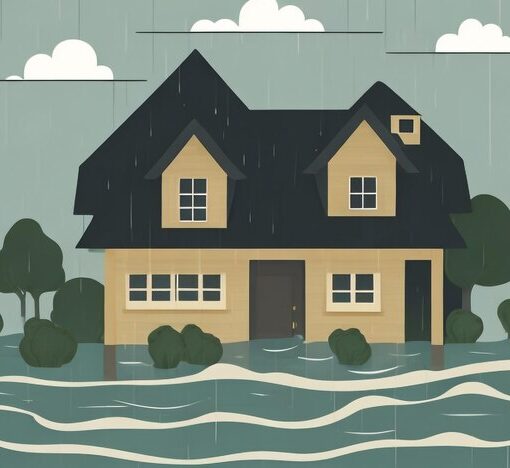What the DP3 insurance policy covers and when it can be beneficial is explained in this post.
Having a DP3 policy and when you should acquire one. This article will tell you what it is and why you should get one.
Are you planning on renting out your primary residence or buying another house as an investment? Has your insurance company declared that coverage will not be provided in these situations?
It’s crucial to have the right insurance policy when investing in property. A few damages might cost you thousands of dollars or cause financial distress. What coverage is best for a residential property that is on the market, and where the owner’s policy cannot be used?
To understand what the DP3 policy is, you should read this article. This article will explain why you should get one.
What is a DP3 insurance policy?
A dwelling fire insurance policy consists of three different versions. DP3 is one of them and is an open peril policy, meaning that it covers all risks unless the insurer has listed specific exclusions. For example, if the insurer says that they do not compensate for damages resulting from political unrest, they will likewise not compensate you for damages resulting from such an event. Instead of paying for actual cash value (ACV) losses, the DP3 policy pays for replacement cost value (RCV) losses, up to the policy’s limits. When you suffer a covered loss, the insurer pays for the replacement at current prices up to the policy limits.
With the DP1 policy, actual cash value removes the property’s depreciation expense from your final payment, so you may not have enough money to pay for a new replacement at current prices.
Suppose you own an extra home that’s 10 years old and requires significant repairs after a hailstorm. The repairs are estimated to cost around $25,000. Your insurer will reimburse you for the current market value of items damaged under DP3. However, if you were insured under DP1, you would receive the depreciated value for the damaged items, since ACV discounts the depreciated value of damaged items. In other words, you will receive less money under an ACV policy, leaving you to cover some of the cost.
DP3 insurance covers a diverse range of risks.
DP3 policies are among the most popular because of their extensive coverage. The DP3 policy is an open peril policy, so it typically covers all property risks unless specified otherwise.
Non-structural damages can be expensive.
Damage to the property’s primary structure and detached structures, such as fences, sheds, pool houses, and garages, are covered under DP3 policy.
However, an insurer will not cover certain losses if they are excluded in the policy. These exclusions are defined, and they may differ from company to company.
Floods, acts of terror, mold damage, intentional damage, and neglect are all not covered under DP policies. Examples of the following endorsements are most of the time essential: building code requires you to rebuild your home in accordance with current codes which could cost you a good deal if you do not have this endorsement; and you may want to buy a water backup endorsement (for example, if a basement sump pump is overflowing or if water is backing up from a drain). These may be purchased as additions to your insurance coverage (if they are not already included) for an additional fee.
Loss of income coverage.
In the event that your property is damaged, this policy reimburses you for lost income up to the policy limit, provided that a covered peril caused the damage. However, the damage must make the property uninhabitable, and current tenants must move out or no tenant may move in until it is completely repaired.
The individual is liable.
What if an injured person is found on your property, and you’re held financially responsible? Perhaps you would be okay with paying for their medical expenses and legal fees. Would it be a financial imposition? Absolutely! Personal liability coverage would be there to help you out in such a scenario if an injured party sued you and you were found liable for damages.
Most DP3 policies will cover personal property furnished for use by the tenants, such as appliances. However, if you want additional coverage for household furniture for a fully-furnished short-term or vacation rental property, you may want to verify that you have the proper coverage by speaking directly with your insurance agent.
Is there ever a time when a DP3 policy is required?
Residential property owners who do not live on the property may only avail of this policy. For example, you might have purchased a new home and plan to make it your primary residence, leaving your current home to a tenant. Alternatively, you might have purchased a single-family home or small multifamily property to keep as a full-time rental.
A DP3 policy may be the best choice for you if you are renting out your former primary residence and owner-occupied residential properties are not covered by homeowners insurance.
Remember that DP3 policies do not cover seasonal homes or those that will be unoccupied for a long period of time (60-90 days or longer). These properties are deemed to be higher risk as no one is there to watch for damages. A tiny leak in an unoccupied house, for example, might result in much more damage if no one was there to catch it as opposed to if the house had been occupied.
Vacation homes or vacant residential properties may require particular insurance coverage. Vacant house insurance policies are usually provided by insurance agents. A DP1 policy might be an alternative. Theft and vandalism are not covered, although some companies might be able to include them in vacant property insurance coverage.
There are other dwelling policies to consider.
The DP1 policy is the most basic of the three, offering protection against nine hazards. The DP1 policy is a named policy that covers only nine hazards. Because it deducts the depreciation cost of the property from the payout of a covered claim, the DP1 policy is more affordable than the other two options. Unless your property is going to be vacant for a long time, the DP1 policy is generally not a good option.
A DP2 policy is said to be the moderate option of the three. A DP1 policy only covers nine risks, whereas a DP2 policy covers 18 risks, including burglary, fire, frozen pipes, and vandalism. Furthermore, the DP2 policy does not provide coverage against all perils.
Also, the DP policies may not provide coverage for personal injury or personal property loss. If you want to ensure that you are covered if someone is injured on your property or your personal property is ruined, you should consider purchasing those coverages.
DP3 policies for rental property can be purchased at an insurance broker.
Finding an insurance broker who can help you select the appropriate property coverage and real estate investment protection is so important because obtaining the correct insurance policy is essential.
An insurance broker is a person who sells insurance.
You can use your current insurance provider or broker to find landlord insurance. This may be the least difficult path because you won’t have to do a lot of research or compare many quotes from several companies.
Friends who also own property.
Those who have already “been there, done that” in real estate investing can be a good source for landlord insurance. People usually discuss their experiences with insurers and the lessons learned, as well as recommend coverage or an agent they’ve used.
Having connections
You may be able to find the best landlord insurance by connecting with other real estate professionals at networking events, trade shows, or social media. You can meet a representative from an insurance company at events where you can learn more about landlord insurance.
Finally, my thoughts on the best DP policy to purchase
An open peril policy such as DP3 is excellent insurance coverage for landlords. It protects you against a variety of perils. During a claim, it pays replacement cost value.
You should compare exclusions between insurers if you decide to purchase a DP3 policy. In other words, insurers can specify the risks they will not cover in the policy. If your property is damaged by an excluded peril as maintenance or tenant caused damage, for example, the insurer will not pay you in these situations.
Our highly trained, licensed public adjusters will guide you through the process of preparing and filing an insurance claim in a professional manner. Similar to hiring an attorney if you needed to go to court, or hire a certified public accountant to file your tax return, you should only file an insurance claim with your own professional insurance and construction expert – a AAA Public Adjuster.
Let AAA Public Adjusters get you the maximum return on your insurance claim! See how we can help.
To start a new claim, call 1.800.410.5054 today for a free inspection and policy examination from our Public Adjusters.




